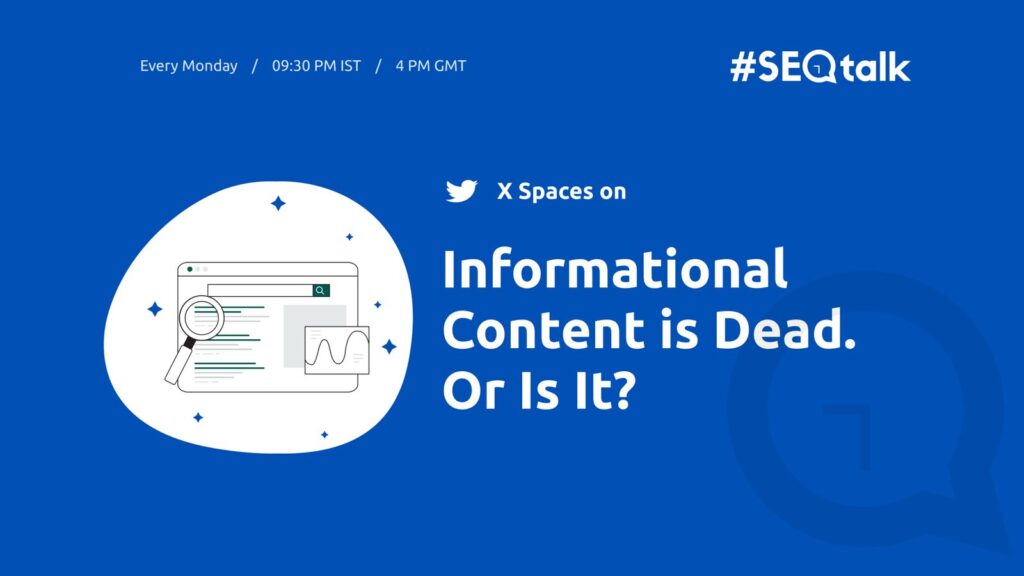The debate burning in the SEO world today: Is informational content dead in the age of AI and Large Language Models (LLMs)? In episode 105 of SEOTalk Spaces, we weighed in on a landscape where Google’s AI Overviews and zero-click results have sent shockwaves through the industry.
The Shift: From Traffic to Real Value
Traditional informational content like TOFU (top of the funnel) blogs and guides faces major headwinds.
AI Overviews increasingly consume prime real estate on search result pages, often answering user queries directly without sending any traffic to the original publisher.
To paraphrase one participant: “It’s like building a beautiful billboard that no one looks up at anymore because everyone’s got GPS on their phones.”
Are Users Changing Or Just the Marketers?
While marketers obsess over AI-driven search and generative results, some panelists pointed out that the average user may not have caught up yet.
Deepali raised a crucial question: “We are adapting because we are in the marketing field, but is your end user, who is like a layman, actually using AI search directly?”
Most users, especially outside tech circles, still rely on Google though younger generations increasingly search directly on video platforms and social media.
Hard Truths: Traffic Is Down, Conversions Are Harder
Click-through rates (CTR) and organic traffic have dropped sharply for informational content.
Parth mentioned:
“The overall conversions that we used to get through high search volume top of funnel content—lifetime peak was probably 2024. We won’t see those numbers again…AI Overviews and LLMs haven’t killed TOFU content, but the way audiences interact has transformed.”
Brands like HubSpot have adapted by doubling down on new formats such as video snippets, FAQs, and interactive tools—essentially chasing scraps of traffic where “there is still some juice left”.
It’s Not Dead – It’s Evolving
A key takeaway: Informational content hasn’t died, but it can’t survive unchanged. Instead, the format, placement, and expectations must shift:
Optimize for engagement metrics: Google algorithms are “very matured in terms of understanding engagement metrics rather than just the written content”.
Structure content for SERP features: Use tables for SaaS comparisons, offer deep troubleshooting guides, and surface key insights in ways search engines (and users) prefer.
Start with deep user research: “Before taking any SEO project, I do a very detailed persona of the user. Who is your user? What are their worries, their needs?”
Focus on “what happens after the click”—driving real actions like purchases or leads, not just pageviews.
Or as one expert put it: “Content is the king, but optimization is the kingmaker.”
Looking Ahead: Future-Proof Content Strategies
SEO is far from dead, but the playbook is being rewritten.
The panel urges: Don’t cling to old benchmarks or formats. Instead, experiment boldly, measure engagement, and above all “stay tuned”—because in SEO, evolution is the only constant.
What is your thought?
